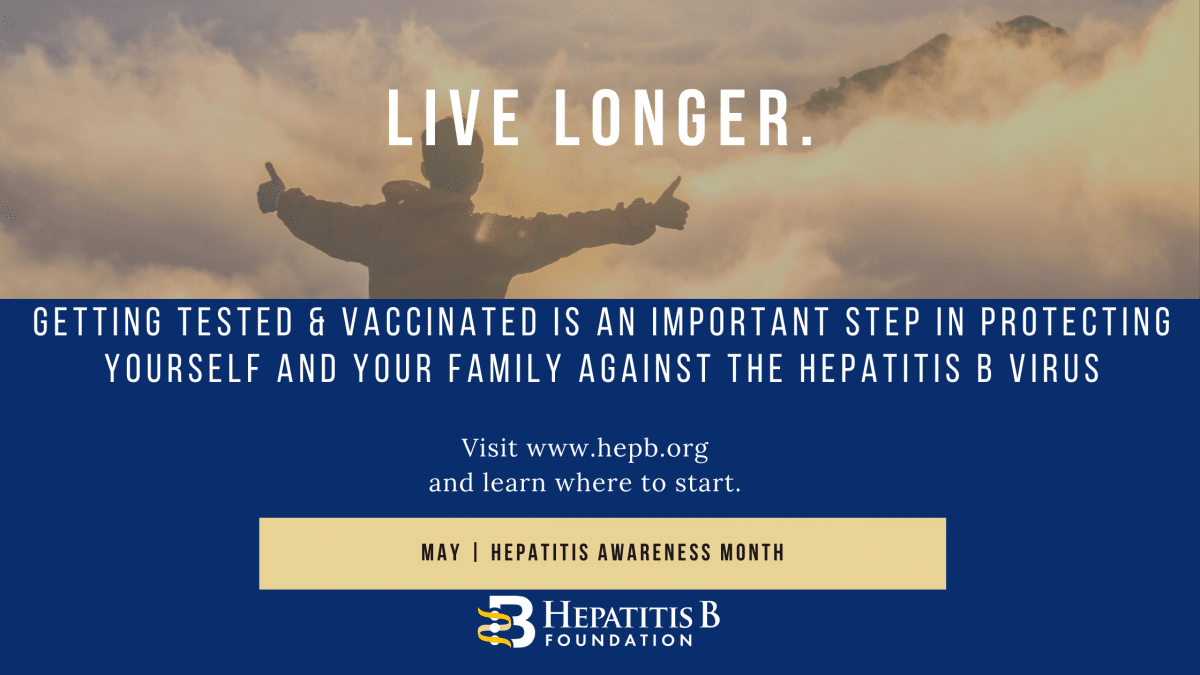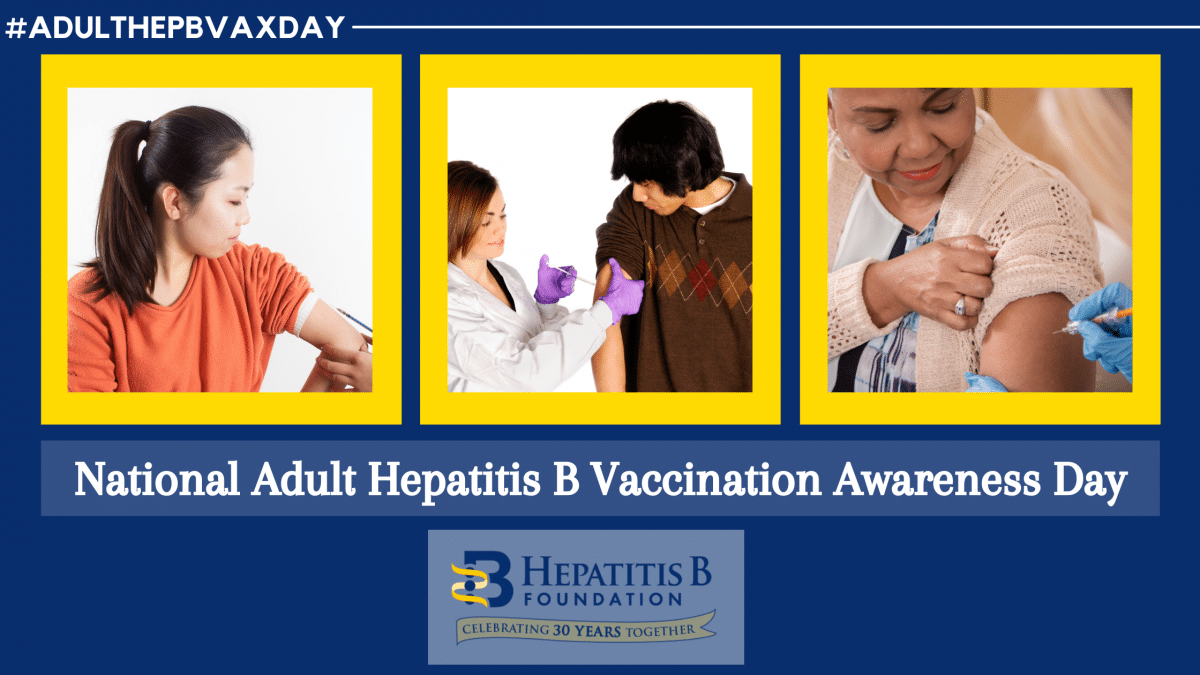
May is Hepatitis Awareness Month! This month, we bring awareness to the public health impact of viral hepatitis in the U.S., and the health consequences of hepatitis B and C infections if left untreated.
Globally, hepatitis B virus (HBV) affects 2 billion people and in the U.S. an estimated 2.4 million people are living with a chronic hepatitis B infection. Hepatitis B is often called the “silent killer”, as people often do not realize they are infected with hepatitis B until their liver is severely damaged, which makes it vital that the month of May is dedicated to raising awareness of hepatitis B. Because chronic hepatitis B infection is the most common risk factor for liver cancer, it is critical that we improve awareness on how to prevent, diagnose and treat hepatitis B. Individuals chronically infected with hepatitis B have a 25% to 40% lifetime risk of developing liver cancer. However, it is important to note that with proper testing and treatment, people living with hepatitis B can reduce that risk and live a long and happy life.
This month we look forward to encouraging all adults in the U.S. to get tested for hepatitis B with a simple blood test, and get vaccinated with a safe and effective vaccine if they are not yet protected or infected. Thank you for helping us bring awareness to hepatitis B this May!
Resources For Patients
The Hepatitis B Foundation has multiple resources for patients you might not be aware of. Below is a small list you should check out!
- Hep B Community
- A new global online support group.
- Physician Directory
- Find knowledgeable doctors! The Hepatitis B Foundation has created a directory of liver specialists to help those seeking qualified medical care. The specialists have agreed to be included in this directory and treat chronic hepatitis B and/or liver cancer and are willing to be contacted for further information.
- B Heppy
- A podcast discussing all things hepatitis B-related. Our first episode discusses the COVID-19 vaccine and people living with hepatitis B.
- Liver Q’s Video Series on Hepatitis B
- These short video clips answer some frequently asked questions about hepatitis B.
- Clinical Trial Locator
- Volunteering for a clinical trial program can be very valuable. Expensive blood work, treatment medications, and doctor’s visits are usually provided free of charge for those accepted into a study. Clinical trials also provide the opportunity to potentially benefit from the latest advances in medical science.
Check out our website for more!
Resources For Providers
- CDC’s Hepatitis Awareness Month Social Media Toolkit
- Hep B United’s and CDC’s Know Hepatitis B Social Media Templates
- The Know Hepatitis B campaign provides translations in multiple languages like Arabic, Amharic, French, and Swahili, Chinese, and Vietnamese.
- Hep B United Philadelphia’s Provider ECHO
- The goal of the Hepatitis B ECHO is to expand provider capacity at the primary care level to diagnose, treat and manage hepatitis B. Each ECHO session will include one case discussion and a 15-minute didactic aimed to empower providers to manage hepatitis B.
- Webinar: Educational Resources for African Communities
- Panelists from the Centers for Disease Control and Prevention (CDC) and the African Services Committee will discuss Know Hepatitis B campaign resources for community health workers working within African communities and community-based hepatitis B prevention initiatives. Additionally, hepatitis B activist and storyteller Bright Ansah will share his personal experiences with hepatitis B and highlight the need for greater awareness, education, and resources about hepatitis B in African communities.










